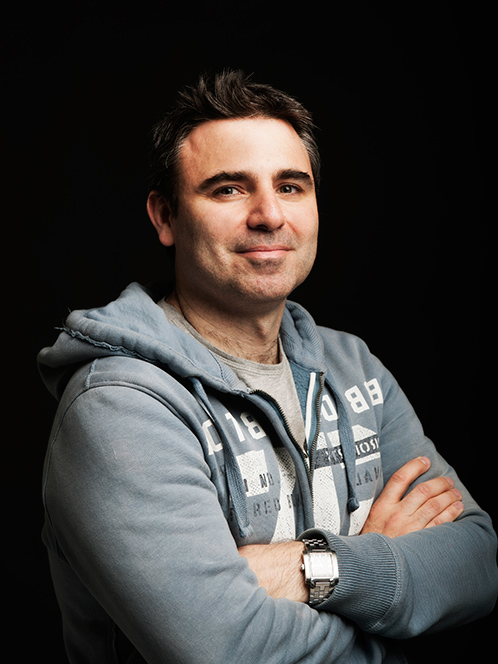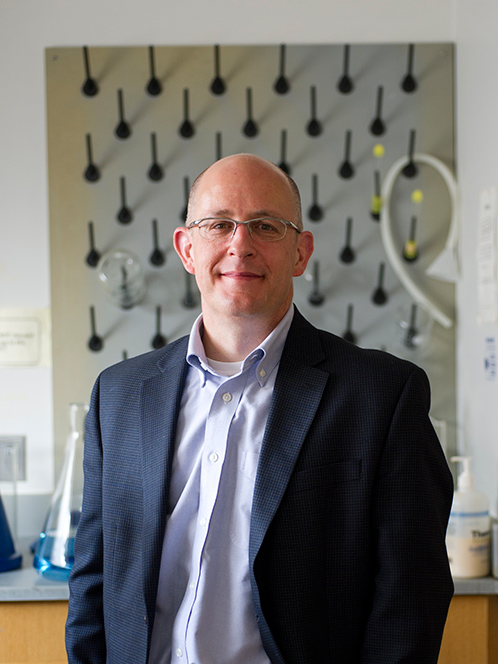Too Many Postdocs, Too Little Funding
For junior scientists, the road ahead gets complicated
Chelsea Epler, the high-achieving daughter of a Midwestern farmer and a special education teacher, spent the summer between junior and senior years of college falling in love. Working in a microbiology lab at the University of Iowa—an opportunity she won through the National Science Foundation (NSF)—she became besotted by science. She loved staying late to purify proteins and culture bacteria to grow overnight. She loved coming back to the lab at 7:30 a.m., when she would inhale the earthy aroma of bacteria and know the experiment was working. “I was totally sold on science,” she says.
Epler made up her mind to pursue a career as an academic biomedical research scientist. “In my idealistic, 21-year-old view of things,” she recalls, “I thought if I could put a mark on science, I could help millions of people.”
Fast forward nine years and one PhD in microbiology later, to 2014. Epler was on her second postdoc, in biophysics, at the School of Medicine, spending 13- and 14-hour days in the lab, earning $42,000 a year, and in despair over her future. She was doing all the right things. She had published two journal articles with her mentor, Esther Bullitt, a MED associate professor of physiology and biophysics, who had told her she had the chops to become an outstanding independent researcher.
But with Congress constricting federal research funding, Epler realized that she had spent over a decade preparing for an academic job she was unlikely to get anytime soon, if ever. The scarcity of federal resources had left too many bright, highly trained postdocs competing for too few faculty positions.
“I called my mother every night, saying, ‘What am I going to do with the rest of my life?’” Epler recalls.
Many promising young scientists have been asking themselves the same question. Epler had committed herself to science in an era when government money was flowing to the National Institutes of Health (NIH), which funds the majority of the nation’s public biomedical research through grants to university labs. Between 1998 and 2003, Congress doubled appropriations to the NIH. The biomedical research enterprise—labs, faculty positions, numbers of graduate students and postdocs—expanded accordingly. But when the funding leveled off, so did the opportunities for junior scientists, and Epler was no longer sure where she fit.
“Today too many people are chasing too little money to support increasingly expensive research,” former National Cancer Institute director and Nobel Laureate Harold Varmus and three other prominent scientists wrote in a Proceedings of the National Academy of Sciences (PNAS) article last April. The result is “a hypercompetitive atmosphere,” the scientists warned, in which “promising careers are threatened.”

“In my idealistic, 21-year-old view of things, I thought if I could put a mark on science, I could help millions of people.”Esther Bullitt
“She would have been a great PI, but I want her to be happy, too.…Learning how to think scientifically is perfect for lots of jobs. People go into banking, patent law, all sorts of things that need high-level skills. I totally respect other choices.”
Photo of Chelsea Epler (left) and Esther Bullitt by Dan Aguirre
Between 1979 and 2009, the number of life sciences PhD students ballooned from 30,000 to more than 56,000, according to the NIH. No one has accurate data on postdoctoral trainees—there has been a large influx of young scientists from Europe and Asia—but their ranks soared as well, and the NIH estimates their number at between 37,000 and 68,000. Although unemployment among people holding biomedical PhDs is extremely low, most of those postdocs will find jobs not in academia, but in industry, law, science policy, government, education, and other fields. The NIH, among others, is concerned that the long training time and the declining numbers of PhD graduates who are getting independent academic research positions will make biomedical research a less appealing career and that the United States could lose a generation of the best and brightest scientists. There is a striking disconnect, meanwhile, between the evolving biomedical workforce and graduate training, which continues to focus almost exclusively on preparing people for traditional academic research positions, according to a 2012 NIH Biomedical Workforce Working Group report.
Hence, Epler’s life crisis, at age 30. “We all have these rose-colored glasses on when we start,” she says. “We know only 15 or 10 percent of our class will end up getting jobs in academia, but we think we’re going to be in that 10 percent.”
NIH and universities the machine, trainees the engine
The NIH and NSF define a postdoctoral trainee as someone with a doctoral degree who “is engaged in a temporary and defined period of mentored advanced training to enhance the professional skills and research independence needed to pursue his or her chosen career path.” That is the ideal, but it’s not how the training always works in practice.
The vast majority of postdocs in the United States are supported on a combination of NIH training grants, fellowships, and research project grants, most notably the NIH R01, the $1.25 million grant that’s the workhorse of biomedical research. Their training is supervised by principal investigators, or PIs, who act as mentors. PIs rely heavily on trainees to carry out most of their lab’s hands-on work, running experiments and collecting the data needed to publish studies and write the next grant application.
If the NIH and universities like BU are the machine of research, says Linda E. Hyman, associate provost for MED’s Division of Graduate Medical Sciences, then trainees are the engine. “They’re the ones driving or performing the work,” Hyman says. “They’re often underpaid. They’re in these positions for a long time. Their mentors are the ones who decide when they’re ready to move on, and they provide the letters of recommendation they need to succeed.”
The postdoctoral training period has been traditionally seen as a three- to five-year apprenticeship, the final step to becoming an independent researcher. Things work differently in some departments, such as MED’s pharmacology and experimental therapeutics department, which has had a long partnership with the pharmaceutical industry. Many of its graduates and postdocs pursue successful careers in that industry, as well as in academia and government, according to department chair David H. Farb, a MED professor of pharmacology and experimental therapeutics. Farb says he sees postdocs in other biomedical research fields getting stuck in the pipeline; they’re not moving up in academia or on to something else. “You finally get your PhD and now you go into a postdoc,” he says. “Then let’s say it’s another five years, and you’re just at the beginning of being able to do your own work. After years of virtual poverty, you’re 31 years old, you haven’t had a real job, and there are few academic jobs to go around, except for those working in the ‘hot fields’ of research at the moment. You’ve committed your life to science—what do you do?”

“He’s very supportive.” Olmos says his mentor, Tarik Haydar, a MED associate professor, has given him invaluable opportunities to grow as a scientist.
Photo by Jackie Ricciardi
Luis Olmos earned a PhD in cellular biology in his native Spain and came to the United States in 2007 to do his first postdoc, at Children’s Hospital in Washington. He is now in the fourth year of his second postdoc, in Tarik Haydar’s neural development and intellectual disorders lab at MED. Haydar, a MED associate professor of anatomy and neurobiology, recruited him and has given him invaluable opportunities to grow as a scientist, Olmos says, including a stint at Harvard Medical School’s NeuroDiscovery Center to learn methods to measure cognitive function in mice. “He’s very supportive,” Olmos says.
Haydar has been trying to arrange a faculty position at MED for Olmos and for Bill Tyler, the second postdoc in his lab, but amid all the uncertainty over money, Olmos still worries. He is 39 and he and his wife, who is a lab manager at BU, have three kids under age 7.
Haydar pays both his postdocs well above the NIH recommended guidelines, he says, which start at $42,840 a year and go up to $56,376 after seven years. “They are both superior postdocs,” he says. “These are two scientists who in the right universe should be running their own labs and starting on their own independent careers, but the playing field is very, very difficult for everybody.”
Haydar says he would commit to supporting Olmos and Tyler as independent researchers for a brief period until they win funding on their own. “This can hopefully get them through the door,” he says. “My lab’s research would be greatly augmented by having them as independent neighbors and colleagues. I am willing to take on my part of that risk and my department has always been willing to provide support for deserving members of the junior ranks.”
Haydar did his own postdoc at Yale in the late 1990s. “There’s this career progression,” he says. “You get a PhD, you do a postdoc, you look for an academic job, you become an assistant professor. You scrabble around for funding, you get a grant, you have success for one day. Then you start scrabbling around again—what’s your second grant going to be? That’s the traditional track. That track is nonfunctional now.”

“They are both superior postdocs. These are two scientists who in the right universe should be running their own labs and starting on their own independent careers, but the playing field is very difficult for everybody.”
Photo by Jackie Ricciardi
The broken pipeline
After years of reports documenting “the broken pipeline” in biomedical research, and with postdocs themselves speaking up more, there are signs that things are beginning to change. Last fall Boston postdocs organized a Future of Research symposium at MED to call attention to the problem and propose reforms. And now, with the NIH recommending that graduate students and postdocs be better prepared for “a broad-based and evolving research and research-related economy”—in other words, for jobs outside of academia—a growing number of universities, including BU, are stepping up their efforts to recognize and help postdocs.
MED opened the Office of Professional Development and Postdoctoral Affairs four years ago, under Hyman. The office expanded to the Charles River Campus in February with the appointment of Sarah Chobot Hokanson (CAS’05), who has a PhD in biochemistry and biophysics and did a postdoc fellowship in chemistry and chemical biology at Cornell, as program director. The office offers all graduate students and postdocs professional guidance that includes nonresearch-related training, such as workshops led by Lauren Celano (Questrom’10), who runs the Boston area life sciences search and career development firm Propel and helps trainees connect with opportunities outside of academia. There are 525 postdocs across the University and about two thirds of them are in biomedical research on the Medical Campus.
Last fall, MED won a five-year, $1.25 million NIH Broadening Experiences in Scientific Training (BEST) grant—one of 17 given to universities across the country. The grant is enabling MED to implement a novel program that will reengineer the biomedical training pipeline by preparing postdocs and graduate students for science careers both in and outside of traditional academic research. Hyman is a principal investigator on the BEST team, along with Barbara M. Schreiber, a MED biochemistry assistant professor and department director of graduate studies. They are working closely with industry partners to identify available biomedical research and research-related jobs and to make sure trainees are prepared for those jobs. Some skills, such as critical thinking, problem solving, working in a team, and the ability to clearly communicate science, are part of learning to be a bench scientist and should carry over into jobs outside of academia, Hyman says.
“What you learn in graduate school and as a postdoc provides you with transferable skills for a variety of careers, including research-intense and research-related ones,” she says. “That doesn’t mean that everyone is going to get their first choice jobs—you still have to be competent and competitive and trained—but the jobs are there.”

“We just want people to know what they’re getting into and to open their eyes about options. The problem with the old system is that you weren’t given the opportunity to think about anything outside of academia.”
Photo by Dan Aguirre
The grant includes a position for program manager. With Bullitt’s support, Chelsea Epler applied for, and got, the job. After considerable soul searching, she had decided that even if she could eventually land a faculty job somewhere, the current realities of academic research—the constant anxiety over funding, the hours spent writing grants that might well not be accepted—were not for her.
“She would have been a great PI,” Bullitt says, “but I want her to be happy, too.”
Epler says she was elated to start the new job with BEST in February. “I want to help other people not have the crisis I was having,” she says.
Bullitt commends BEST’s efforts to provide more guidance and professional development for trainees. “I feel like I have to help them be the best independent scientists they can be,” she says. “If that’s not their plan, they need to spend time figuring out what the plan is. Learning how to think scientifically is perfect for lots of jobs. People go into banking, patent law, all sorts of things that need high-level skills. I totally respect other choices.”
The support of Bullitt and other faculty notwithstanding, Hyman views BEST’s biggest challenge as changing the traditional academic culture. “We were all trained by our mentors to be like them,” she says. “I think most PIs are really excited about their jobs. It’s like having a kid. You want the best for your kid and you think being a PI is the best.”
Always changing, always new, always exciting
Not surprisingly, some MED faculty are skeptical about trainees who are being paid out of federal research grants taking extended time away from the lab for nonresearch-related workshops and other activities.
“Many of us were trained in the culture of being in the lab 24/7,” says Andrew Henderson, a MED associate professor of medicine and microbiology and assistant dean of student affairs for the Division of Graduate Medical Sciences, explaining this view. “You were expected to be an academic, and you do not understand why anyone would want to be anything else.
“I do think the culture is changing,” Henderson adds. “Most of us have peers who have left the academic track. Of the people that I trained with during my postdoc at Columbia—from 1991 to 1997—several no longer do bench science.” They are working in venture capital, business development, intellectual property law, consulting, journalism, and for executive search firms, he says.
For all the reports of biomedical research graduate students and postdocs finding happiness and fulfillment outside of academia, there are concerns that the current academic research atmosphere may discourage the best scientists in the rising generation of researchers.

“It’s a joy to do what we do.…I think our students and postdocs don’t hear the plus sides from us enough. The obstacles and anxieties are obvious, and deservedly get emphasis from their mentors. But we should also be telling them more often about the wonderful sides of academic research.…It’s a really hard and difficult path and you might not make it, but you are guaranteed not to make it if you don’t try.”
Photo by Cydney Scott
“It’s a joy to do what we do,” says Joseph Mizgerd, a MED professor of medicine, microbiology, and biochemistry and director of the Pulmonary Center. “I love trying to understand the biology. It’s always changing, it’s always new, it’s always exciting. We’re really privileged. I think our students and postdocs don’t hear the plus sides from us enough. The obstacles and anxieties are obvious, and deservedly get emphasis from their mentors. But we should also be telling them more often about the wonderful sides of academic research and what a fulfilling and meaningful career it can be. It’s a really hard and difficult path and you might not make it, but you are guaranteed not to make it if you don’t try. The potential rewards are great.”
Hyman agrees. “BU’s BEST is not saying that academia isn’t a good career,” she says. “We just want people to know what they’re getting into and to open their eyes about options. The problem with the old system is that you weren’t given the opportunity to think about anything outside of academia.”
Sarah Mazzilli, who has a PhD in cancer pharmacology and experimental therapeutics, says she loves the research she is engaged in as a postdoc in the pulmonary research lab of Avrum Spira (ENG’02), a MED professor of medicine, pathology and laboratory medicine, and bioinformatics. She also says that she is well aware of how hard the academic path is and that she is determined to try. “I have a lot of freedom here, a lot of support,” Mazzilli says. “Will I have this perfect tenure position at some high-ranking university? I don’t know that. I have papers to publish; I have to prove myself. You have so many years to get an RO1 and if you don’t do that—then what? It’s terrifying. I try to stay as optimistic as I can. I’m going to keep working as hard as I can.”
This Series
Also in
Making Research Work
-
April 6, 2015
Who Picks Up the Tab for Science?
-
April 13, 2015
Truths and Half-truths
-
April 21, 2015
Cracking the NIH Code


Comments & Discussion
Boston University moderates comments to facilitate an informed, substantive, civil conversation. Abusive, profane, self-promotional, misleading, incoherent or off-topic comments will be rejected. Moderators are staffed during regular business hours (EST) and can only accept comments written in English. Statistics or facts must include a citation or a link to the citation.